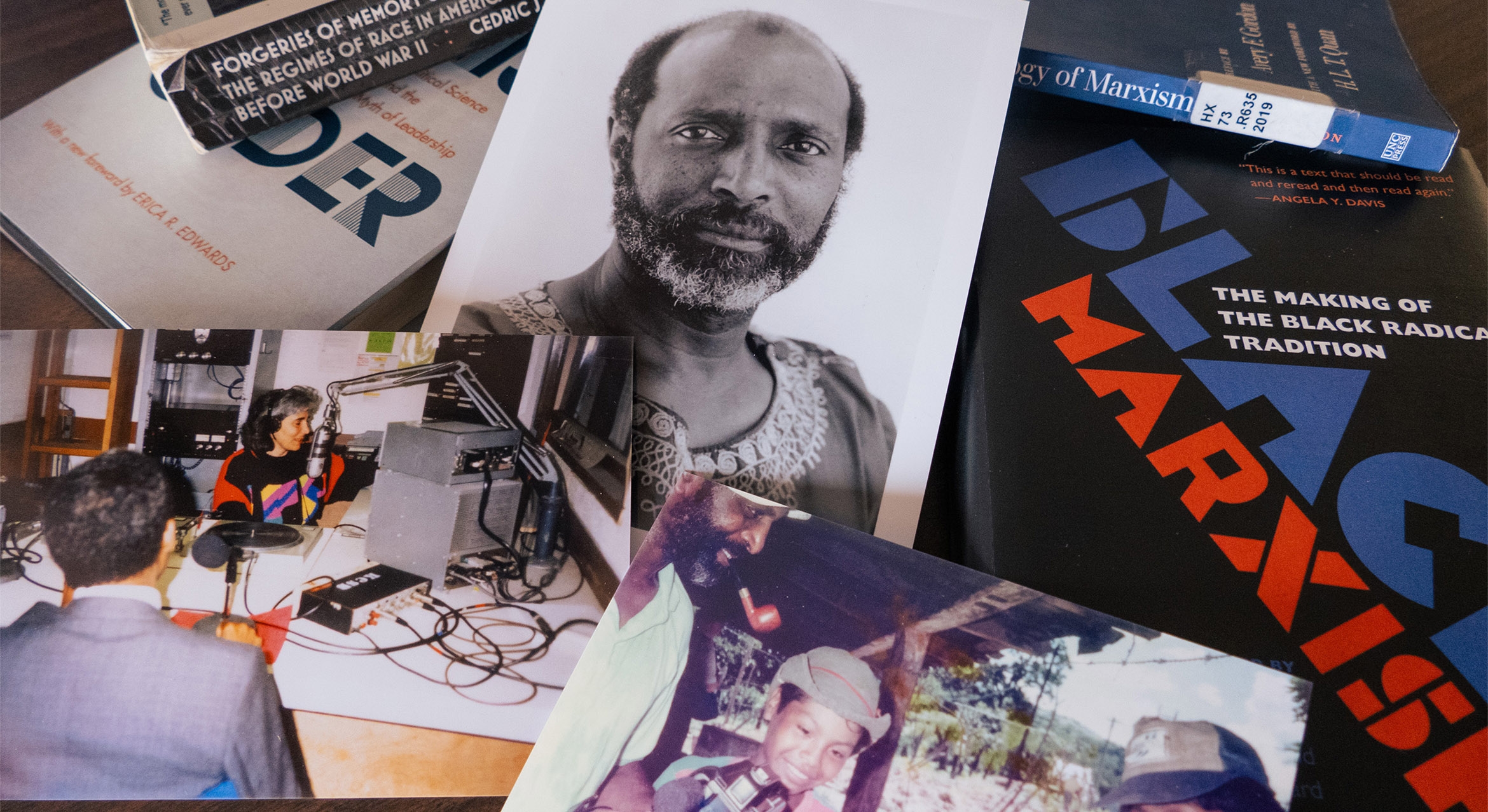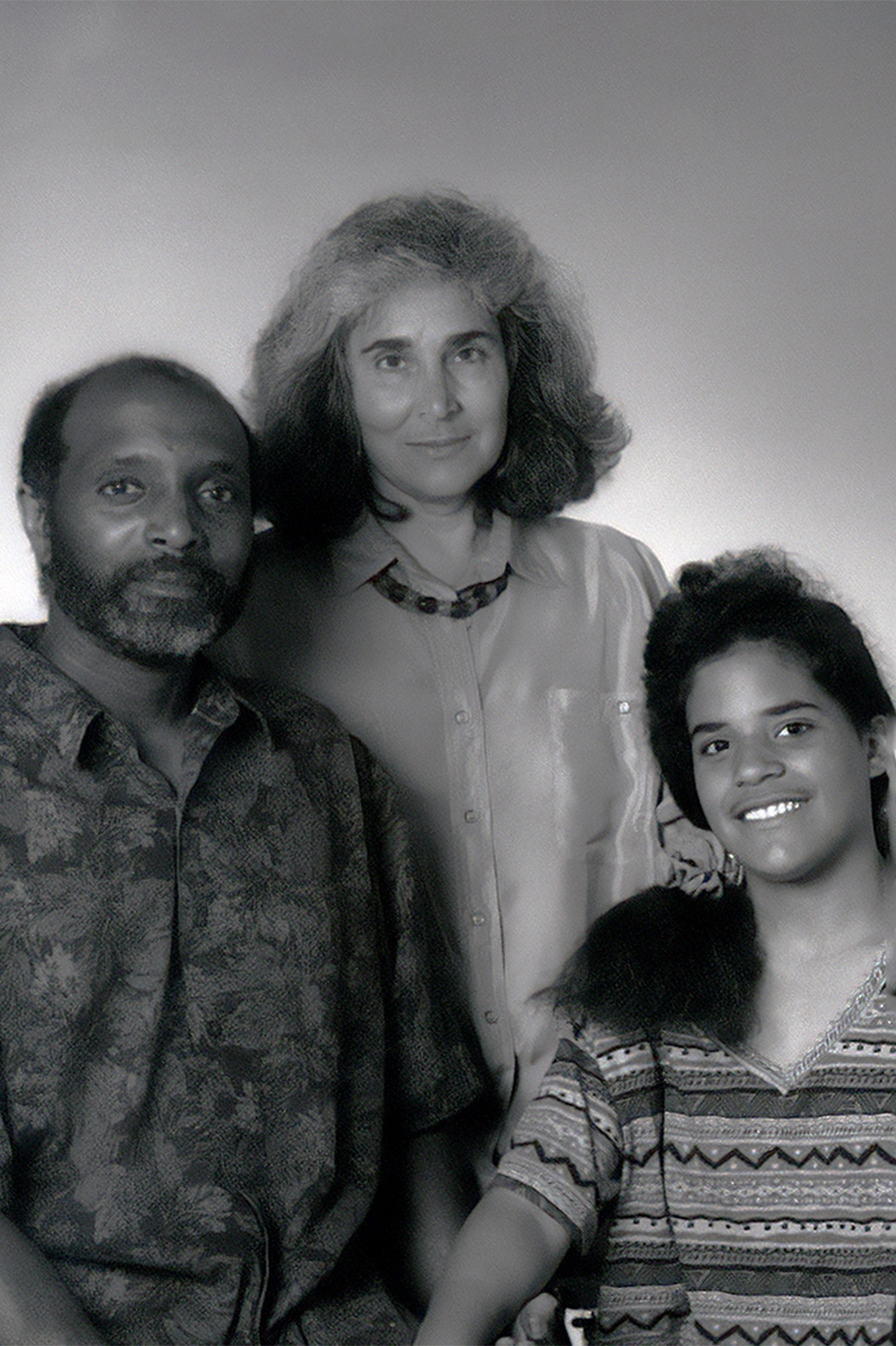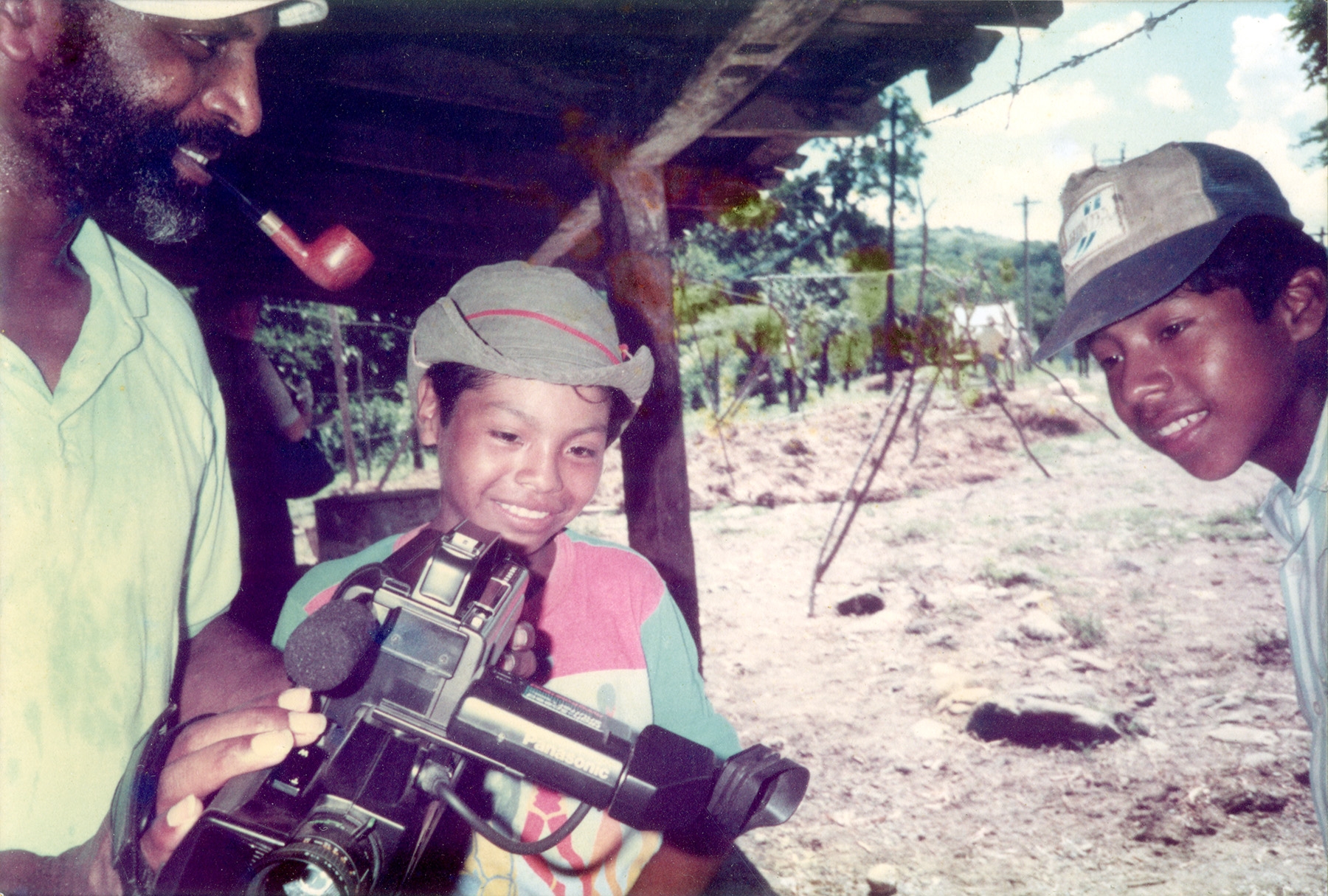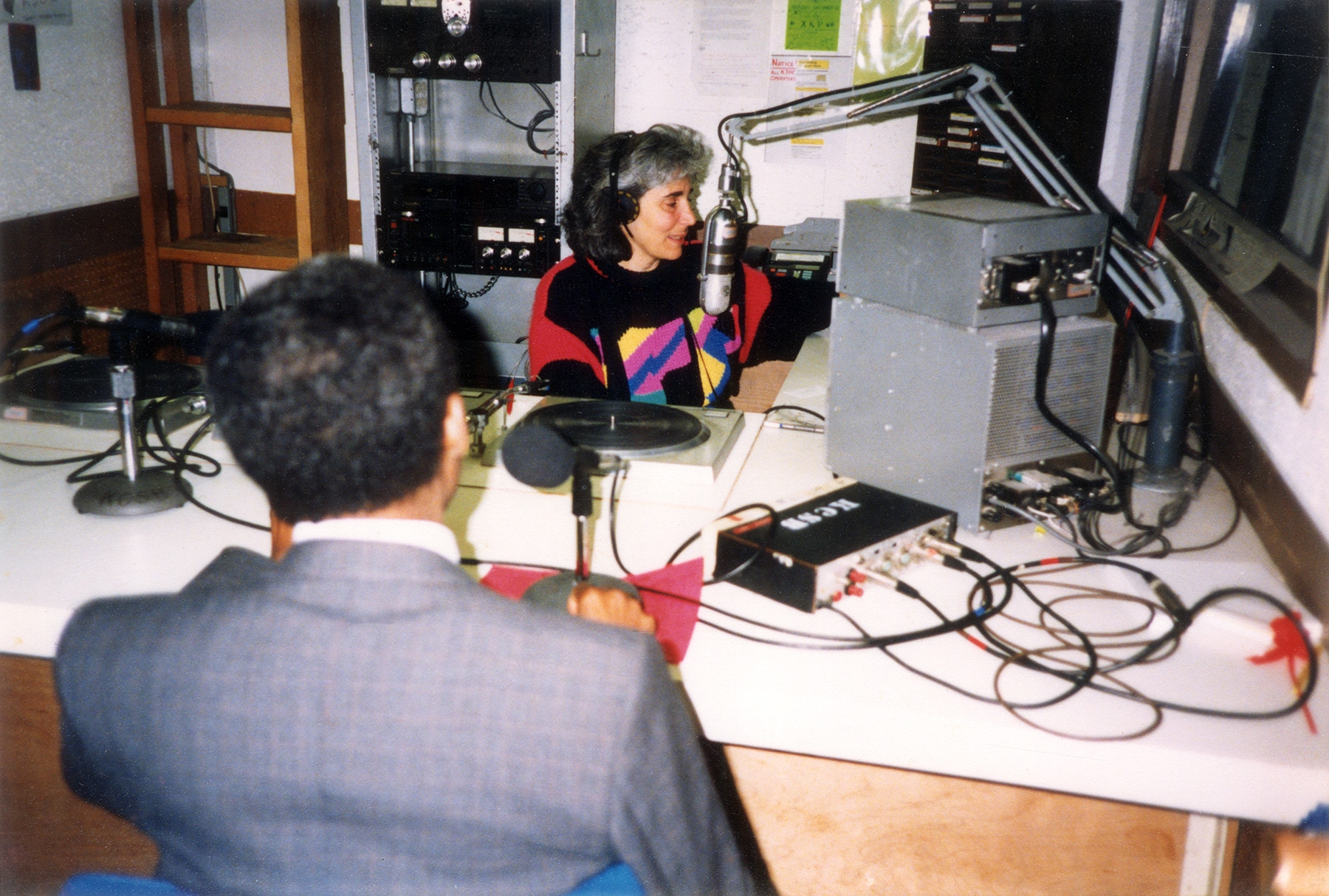
New collection will enable discovery and exploration of the influential work of Cedric and Elizabeth Robinson
The UCSB Library has acquired the Cedric J. and Elizabeth P. Robinson Archive, a collection of research and teaching papers, ephemera and digital materials related to the careers of the Robinsons, renowned for their seminal scholarship and activism that had wide-ranging influence at UC Santa Barbara, in academia, and across many public arenas. The archive was donated by Elizabeth P. Robinson and their daughter, Najda Ife Robinson-Mayer.
Housed in the UCSB Library’s Special Research Collections, the Robinson Archive constitutes an important anchor for related collections to be archived and preserved at UCSB for the next generation of scholars.
University Librarian Kristin Antelman noted that “the Robinsons’ life work did not exist solely for the academy, and neither will this collection. Cedric and Elizabeth were and are committed to social change and action. This project will make their contributions more accessible, enabling them to be discovered and explored by new generations of scholars and community members.”

Cedric Robinson (1940–2016) was a professor and former chair of UCSB’s Departments of Black Studies and Political Science, the long-time director of the Center for Black Studies Research, and a pre-eminent cross-disciplinary scholar, political scientist and theorist of Black radicalism, African diaspora, internationalism, racial capitalism, media and politics. The Department of Black Studies and the Center for Black Studies Research were established in the wake of Black student activism in 1968 and the occupation of North Hall, forging the new academic field of Black studies, as well as other ethnic studies fields. Robinson later was one of two faculty members, along with Gerard Pigeon, who in 1989 participated in hunger strikes that led to the university-wide ethnic studies requirement and the establishment of the Multicultural Center.
A deeply influential educator, Robinson was a well-known scholar who studied racial capitalism and the Black radical tradition, and an active participant in political movements, both at home and internationally. His influential and highly regarded publications include “The Terms of Order: Political Science and the Myth of Leadership” (1980, republished in 2016); “Black Marxism: The Making of the Black Radical Tradition” (1983, republished in 2000 and 2020); “Black Movements in America” (1997); and “Forgeries of Memory and Meaning: Blacks and the Regimes of Race in American Theater and Film Before World War II” (2007). Interest in his scholarship continues to grow. A revised and updated third edition of “Black Marxism” was published by Penguin Classics in 2020, and a biography, “Cedric Robinson: The Time of the Black Radical Tradition,” was published in 2021. His writing continues to gain new audiences and is assigned regularly in graduate and undergraduate courses.
For more than 30 years, Elizabeth Peters Robinson has been an educator, social worker, former associate director for media at KCSB-FM Radio, activist and community media producer. She was the long-time co-host of “No Alibis,” a radical news outlet that provided commentary from community-based perspectives on local, national, and international politics, emphasizing stories often neglected in the mainstream media. “No Alibis” aired as a weekly program for the last time on Jan. 10, 2024. An ardent advocate of independent media, Robinson worked as the Associated Students Associate Director for Media and as an advisor to students at KCSB. She has also worked with the World Association of Community Radio Broadcasters (AMARC) and participated in and covered international meetings like the UN Commission on the Status of Women, the World Social Fora, the World Summit on the Information Society, and the Americas Social Forum.


Cedric Robinson, with UCSB student Corey Dubin, created the “Third World News Review” (TWNR) — a longstanding, community-led radio show on KCSB-FM that provided a counternarrative news source to mainstream media outlets. Alongside Beth Anderson, Elizabeth Robinson was TWNR’s co-producer in both its radio and television program formats, and served as the show’s correspondent covering the Middle East, North Africa and feminist issues. Over the life of TWNR, a wide range of scholars and activists, correspondents and guests were invited to contribute political analyses of world events and foreign policy.
The Cedric J. Robinson and Elizabeth P. Robinson Archive will support the creation of the Black Radical Tradition Archival Project at UCSB, which will use post-custodial, participatory and community-based archival strategies to build and support an international network of scholars and activists carrying out research, writing and teaching centered on key topics represented in the Robinsons’ scholarship and activism. In addition, the archive will provide worldwide digital access to a wealth of primary source materials that are remarkable for their significance and comprehensiveness and will catalyze outreach initiatives that engage scholars, students and interested communities.
The Black Radical Tradition Archival Project is a joint initiative of the University Library, the Division of Social Sciences, the Division of Humanities and Fine Arts, the Office of the Executive Vice Chancellor, and the Department of Black Studies. A portion of the archives, including Third World News Review recordings, have been donated to the New York University Division of Libraries. Both institutions have committed to rapidly process and digitize materials to ensure timely and seamless access and discovery of the Robinson Archives regardless of physical location.
This unique collaboration between public and private institutions was spearheaded by Elizabeth Robinson, who believes that she and her husband’s work should be represented on both coasts and in two archives which each hold important complementary collections.
“Through most of our lives and work, Cedric and I have had deep commitments to collaboration, internationalism and solidarity movements,” she said. “We’ve also believed and worked in public educational institutions that must be valued, especially at this political moment. And while we have been in Santa Barbara for more than forty years, our work has taken us to parts of Africa, the Middle East and Latin America, often to places without adequate access to libraries and similar repositories. The partnership between the two universities might help bridge these inequities.”
Charlie Hale, SAGE Sara Miller McCune Dean of Social Sciences, added: “The Black Radical Tradition Archival Project has three innovative features, which propel our enthusiasm and support: it arises from deep, ongoing collaboration between library professionals and scholars (both faculty and graduate students) who are content experts; it seeks to build networks of affine archives employing non-extractive, mutually supportive archival collection methods; and it makes connections between academia and frontline protagonists of movements for racial and societal justice. We fully expect this project to be transformative and exemplary in ways that duly honor the rich legacy that Elizabeth and Cedric have left to our university.”
Shelly Leachman
Editorial Director
(805) 893-2191
sleachman@ucsb.edu



